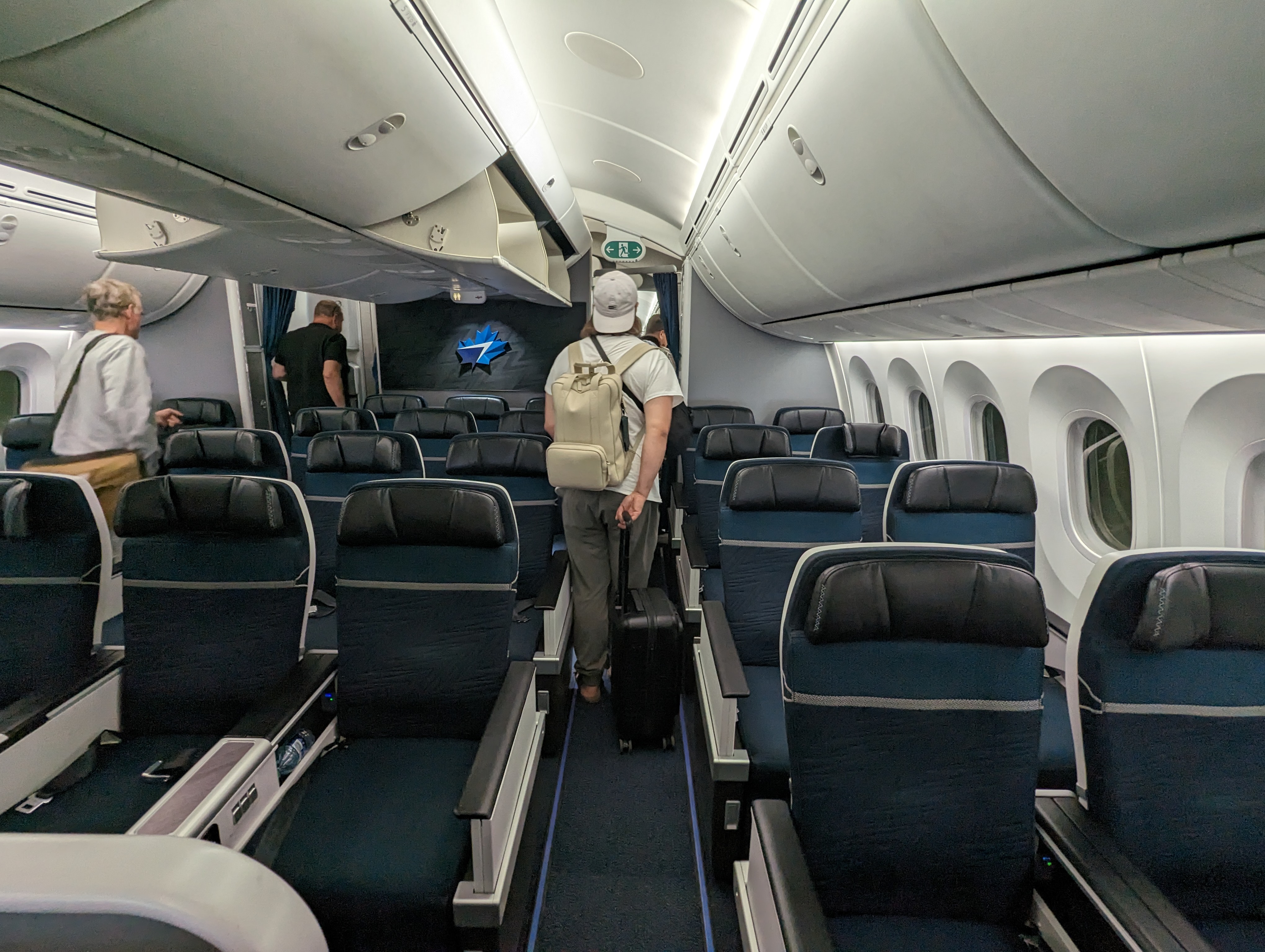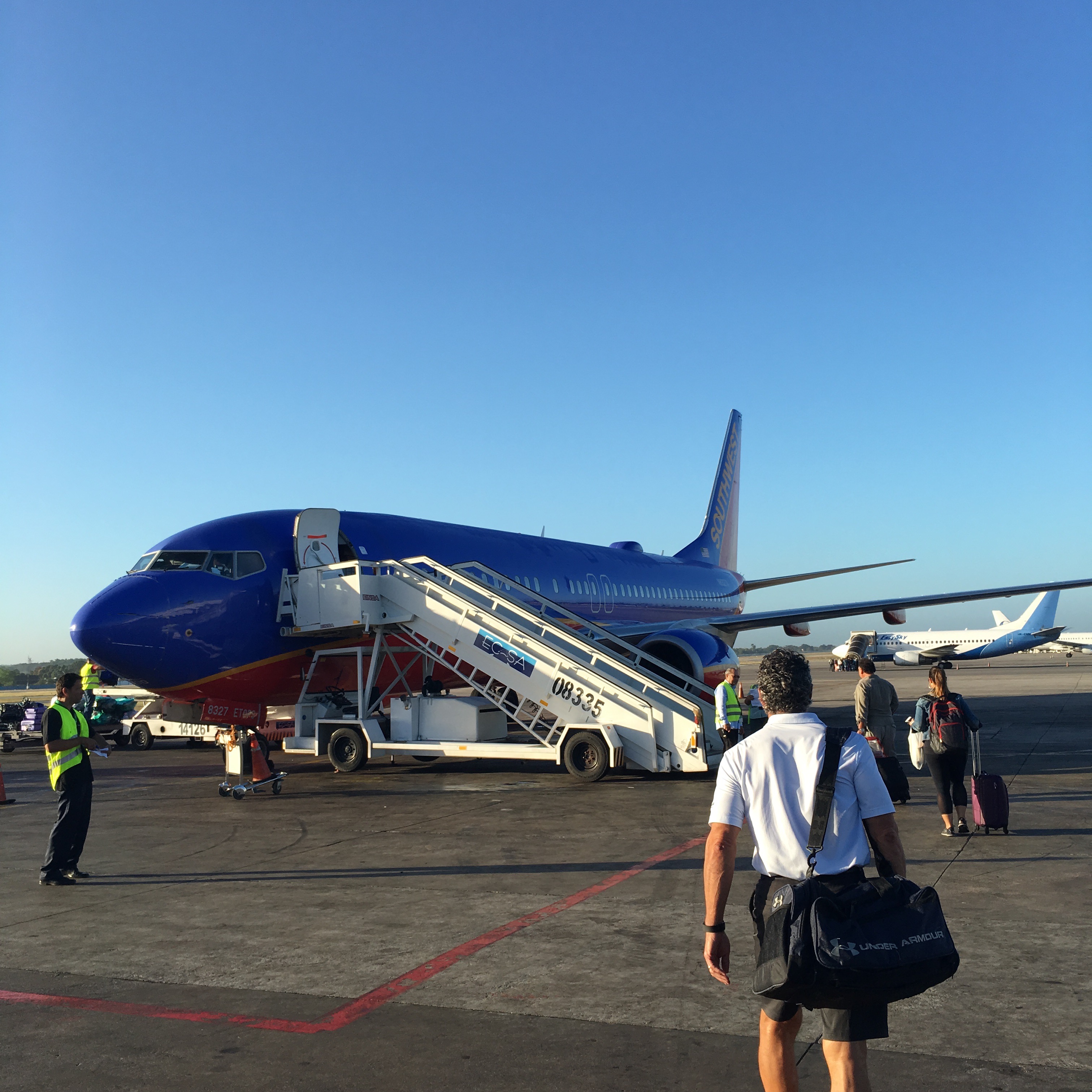Yesterday, in a single sentence Order, the United States Court of Appeals for the Ninth Circuit concluded Rabbi Ginsberg’s case against Northwest (now Delta). No $5 million in damages. Case dismissed.
In accordance with the Supreme Court’s opinion of April 2, 2014, as well as the resulting judgment, the district court’s dismissal of Appellant’s claim is AFFIRMED.
As you may recall, the U.S. Supreme Court (SCOTUS) addressed the breach of contract case two months ago involving a frequent flyer member who was unilaterally removed from Northwest’s program at its sole discretion and the potential application of the Airline Deregulation Act (ADA) to preempt such claims. [Prior travelblawg post here.]
As predicted by many, the 9th Circuit was reversed by the SCOTUS in Northwest Airlines, Inc. v. Ginsberg, concluding the District Court got it right in granting Northwest’s Motion to Dismiss as preempted by the ADA.
The full, 15-page Opinion is here.
In summary, the unanimous Opinion’s Syllabus includes:
Petitioners claim that the refusal to pre-empt all implied covenant claims, regardless of state law, will lead to a patchwork of rules that will frustrate the ADA’s deregulatory aim. But airlines can avoid such a result if they contract out of covenants where permitted bystate law. Nor are participants in frequent flyer programs left without protection. They can avoid an airline with a poor reputation andpossibly enroll in a more favorable rival program. Moreover, the Department of Transportation has the authority to investigate complaints about frequent flyer programs. Finally, respondent might have been able to vindicate his claim of ill treatment by Northwest had he appealed his breach of contract claim.
Pp. 10–14. 695 F. 3d 873, reversed and remanded.
ALITO, J., delivered the opinion for a unanimous Court.

What’s it all mean?
Due to the preemption by the ADA, a “breach of implied covenant claim in this case [based on state policy] cannot stand,” says the SCOTUS. If you don’t get this whole “preemption” business, just remember “the federal government has the power.” That is, the exclusive power. Basically, if you have a problem with your frequent flyer program (i.e. a breach of contract claim), good luck! At least the Justices want you to turn to the federal government via the DOT. But to what extent will (should) the DOT or other federal agencies be involved in contractual relationships with consumers’ frequent flyer programs, especially as they continue to evolve. Such seems to be the point of Gary Leff in his comments from April 2014 here.
Here were my previous talking points for the Ginsberg case, being solely my opinion:
- Federal law gives the federal government the power to regulate most disputes over airline routes and services, i.e. in legal speak, the Airline Deregulation Act (ADA) preempts state and local law.
- In 1995, the Supreme Court confirmed this position when it ruled that consumers could not sue American Airlines for retroactively changing its frequent-flier program. American Airlines, Inc. v. Wolens.
- While the Wolens decision held the ADA did preempt a claim about the AA frequent-flier program under a state consumer-protection statute, it found “routine breach-of-contract claims” were not preempted. Ginsberg’s focus is on the implied covenant of good faith in contracts, regardless of NWA’s authority to control his membership at its “sole judgment”.
- PRO Northwest:
- Focus on how the District Court got it right in dismissing the lawsuit, especially by narrowing the issue down to only the implied covenant claim, as the “pure” breach of contract claim must be dismissed as its express language allowed Northwest to terminate a frequent-flier account for abuse “as determined by Northwest in its sole judgment.” This is strict application of the contract, regardless of it being an adhesion contract.
- A uniform national regulation platform, as found in the ADA, strongly supports preemption. To allow the “doors to be opened” for state law application to a clearly federal maintained industry of aviation, especially including pricing and benefits, would result in a self-imposed “patchwork regulation” scheme that is impractical, confusing, and costly the industry and, in the end, the consumers themselves.
- PRO Ginsberg:
- Focus on how the 9th Circuit got it right in overruling the District Court’s dismissal, especially by turning the very agreement that Northwest relies on, the contract, against Northwestern with the long recognized legal maxim that the implied covenant of good faith and fair dealing is inherent to the contract, the parties’ intentions, and the benefits both parties gain from it.
- Continuing with the clever verbal judo move, it would be Northwest, not Ginsberg, that seeks to avoid the contract at issue.
- While the ADA may preempt other “laws or regulations”, even as the Wolens court has found, common-law claims (such as Ginsberg’s) founded in an implied covenant are excluded from preemption.
- As such, he and others similarly situated like him (and other frequent fliers in the future!!!) should be allowed to proceed on his claim to the merits of his case in returning to the trial court level.
- Nevertheless, the United States asserts its position that the ADA includes a preemption of the implied covenant claim when brought as a separate cause of action (i.e. a separate count in Ginsberg’s complaint), but not when it is used as an element of the general contract claim itself. I certainly hope the justices won’t use a pleading nuance as a scapegoat to driving home a position on the meat of the case.
Want more case analysis? Check out attorney Eric M. Fraser‘s comments via ViewFromTheWing here.
____
@travelblawg
facebook.com/travelblawg
Subscribe in the sidebar!
Disclosure of Material Connection: Some of the links in the post above are “affiliate links.” This means if you click on the link and purchase the item, I will receive an affiliate commission.









